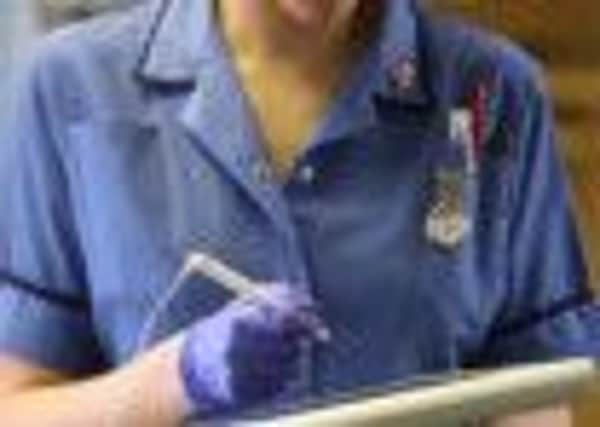Scottish hospitals showing signs of winter strain


Research by Scotland on Sunday found that many hospitals are already operating at above-recommended occupancy levels. The findings come ahead of the anticipated annual increase in rates caused by the winter vomiting bug and flu which led to chaos in the health service last winter.
Medical leaders said action was needed to make sure the NHS could cope with rising demand and prevent patients being treated in the wrong wards.
Advertisement
Hide AdAdvertisement
Hide AdThe Scottish Government has already given boards an additional £9 million to help cope with winter pressures as part of its £50m unscheduled care action plan.
It is recognised in the NHS that hospital bed occupancy rates over 85 per cent make it difficult to provide high quality care, limit the spread of infections or avoid mistakes such as medication errors.
NHS Lothian reported occupancy rates for acute beds of 97.8 per cent at Edinburgh Royal Infirmary, 96.8 per cent at the city’s Western General and 91.4 per cent at St John’s Hospital in Livingston as of last Wednesday.
NHS Greater Glasgow and Clyde, Scotland’s largest board, saw just 277 of its 4,319 beds free on Friday, giving an occupancy rate of just under 94 per cent. NHS Ayrshire and Arran said it had an occupancy rate of 97.5 per cent at its two hospitals – University Hospital Ayr and University Hospital Crosshouse – as of last Thursday.
Increased demand for beds also means that some patients have to be moved to wards outside those specialising in the condition they are admitted for – so-called boarding.
Last week, medical experts published a statement calling for the practice to be eliminated from the NHS after research showed these patients faced a greater risk of complications and death.
But health board figures from last week show almost 200 patients being treated on wards outside their specialism.
The British Medical Association (BMA) Scotland said it had warned earlier this year that there was not enough capacity in the NHS to deal with any significant rise in demand for hospital beds this winter.
Advertisement
Hide AdAdvertisement
Hide AdDr Charles Saunders, deputy chairman of the BMA in Scotland, said: “It is vital that hospital and primary care services have the flexibility to manage sharp rises in demand, particularly from elderly patients.”
“The problem is that many NHS services are already working at full capacity and there is little scope for flexibility.”
Dr Frank Dunn, president of the Royal College of Physicians and Surgeons of Glasgow, said the figures on boarding were of concern given recent data suggesting poorer outcomes in patients boarded out to wards of different specialities.
“The practice of boarding is now agreed by all, including the Scottish Government, to be unacceptable and requires to be phased out as soon as possible,” he said.
A Scottish Government spokeswoman said: “We are working closely with boards to ensure the NHS is fully prepared for this winter following last winter’s norovirus and respiratory pressures.”